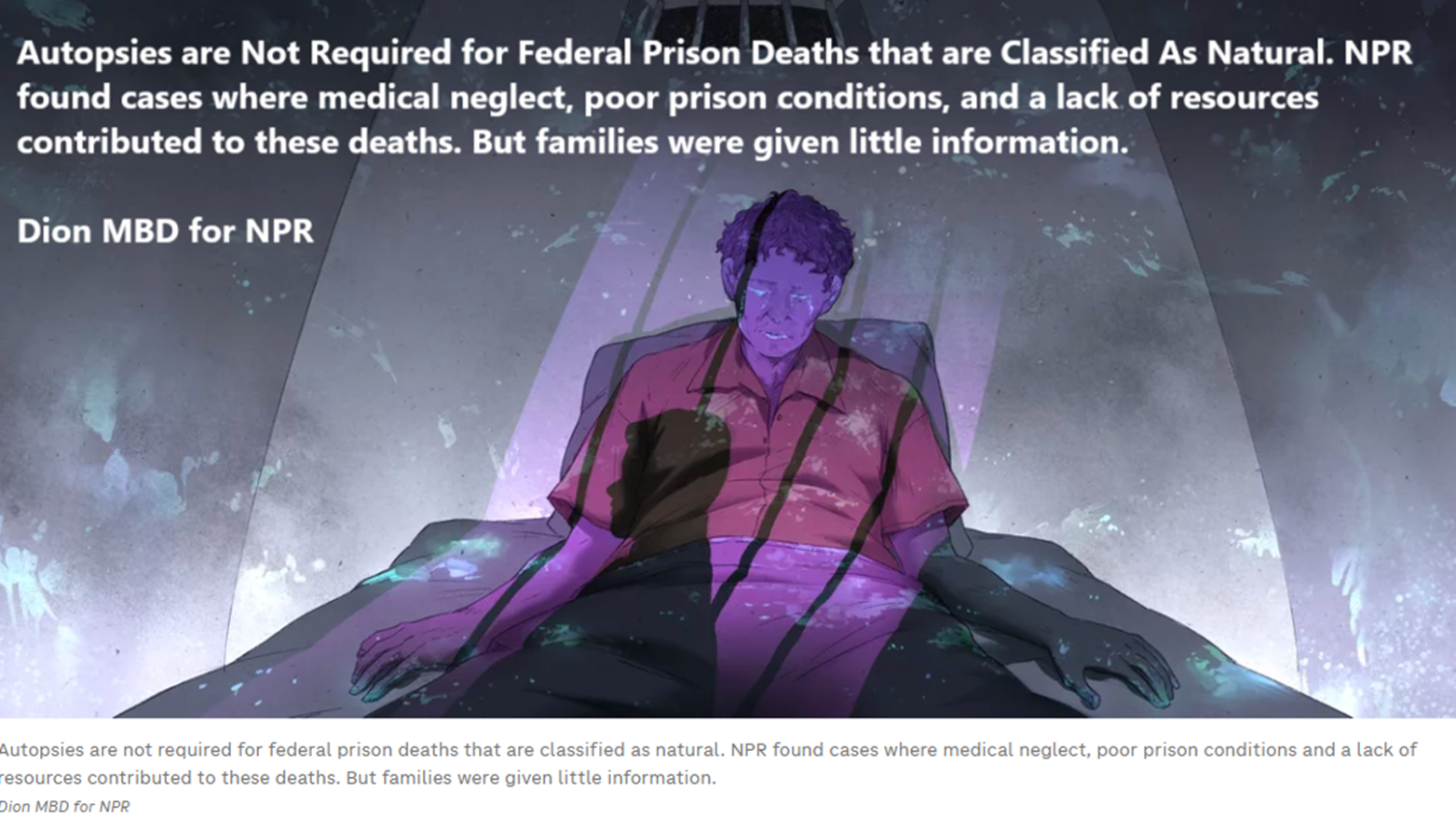THE DARK SIDE OF MEDICAL CARE IN TODAY’S PRISONS: LOVED ONES CAN HELP FROM HOME.
WHY IS THERE THE NEED TO HIDE AN AUTOPSY OR DEATH REPORT?
A
…BECAUSE THEY DON’T WANT TO EMBARRASS PRISON OFFICIALS?
SOUNDS STRANGE, RIGHT?
A
A
-
A February report by the Justice Department Office of Inspector General documented widespread understaffing and a culture of deadly negligence in the BOP.
-
The BOP did not release redacted mortality reports from FCI Aliceville until Reason initiated this FOIA litigation.
- Those records showed that staff ignored one incarcerated woman’s pleas for help for eight months while she steadily lost the ability to walk. Staff advised her to take Motrin for excruciating pain and delayed and denied a CT scan that would have revealed the source of her torment: bone cancer. The woman’s letter for help was written.
- She died in a prison transport van on the way to a local hospital to see an oncologist.
- The court’s deference to the BOP’s arguments relies on the assumption that the BOP is making a good-faith effort to improve its healthcare services and not cover up neglect and malpractice.
- In 2022, a different federal judge held the BOP in civil contempt and levied sanctions.
BEYOND THESE CASES
- “We were in regular contact via email, but suddenly the communication ceased,” Wyckoff recounts. “I was left in the dark for about a week until I received a letter from someone she was imprisoned with, explaining the situation.”
- Wyckoff emphasizes that the BOP has a moral duty to keep families informed. “Just because individuals are incarcerated doesn’t diminish their significance,” he insists.
- Frantzen was moved to FMC Carswell and has since received a defibrillator.
- “They disregarded my concerns and suggested I purchase Tylenol from the commissary,” Frantzen recalls about her time in Aliceville. “It was a truly dreadful experience. They didn’t even notify my family when I was in a coma… Now, I struggle with PTSD related to medication and medical personnel. I consider myself fortunate to be alive.”
INHUMANE
- ‘“It’s incredibly traumatic, and I can’t bear to revisit it because what happened is simply inhumane,” shared a former Aliceville inmate in an interview with Reason. The woman, who chose to stay anonymous, spent four months at Aliceville between late winter 2013 and spring 2014. Now in her mid-30s, she endured unbearable uterine pain and bleeding, and she claimed that prison staff and doctors continuously pressured her into agreeing to a hysterectomy.
- Before her time in the federal prison system, she had been prescribed birth control by a doctor to manage pain and bleeding following surgery for ovarian cysts, which resulted in the removal of one of her ovaries and one of her fallopian tubes. However, upon entering prison, she was taken off birth control, leading to excruciating pain and heavy bleeding.
- “Exposing Parchman” documentary at the Mississippi State Prison.


